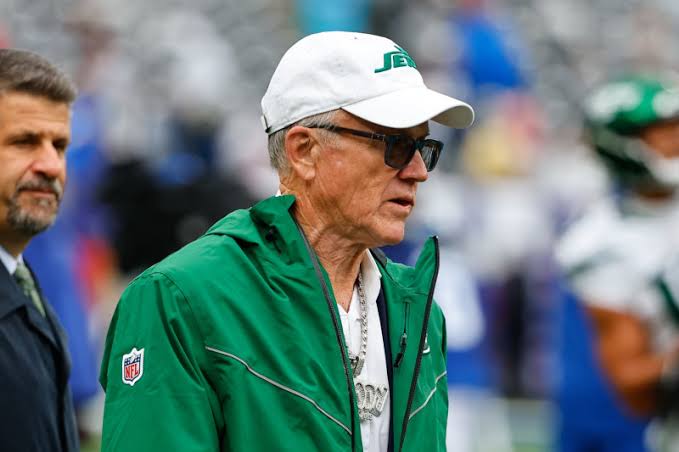
A turbulent season takes a new twist as ownership’s involvement raises eyebrows in New York.
Ownership’s Shadow Looms Over Jets’ Decisions
In a season already marked by turmoil, the New York Jets are facing new waves of controversy, with owner Woody Johnson reportedly stepping into personnel decisions. According to reports, Johnson influenced the benching of starting safety Tony Adams, a move that has left fans and analysts questioning the dynamics of power within the organization.
Adams, a promising undrafted talent from the 2022 draft class, had started all eight games he played this season, logging 58 tackles, five pass deflections, and a sack. His performance ranked him 25th among 89 safeties graded by Pro Football Focus, making his sudden demotion in Week 11 both surprising and suspicious.
A Decision Rooted in Power, Not Performance
Reports from The Athletic suggest Johnson directly instructed the Jets to bench Adams. Interim head coach Jeff Ulbrich was asked about the claim and provided a response that seemed to confirm Johnson’s involvement without outright admitting it.
“I gotta live that too. I can’t be sitting here talking about things that may or may not have happened,” Ulbrich said when addressing the media. “Mr. Johnson and myself have great dialogue, consistent dialogue, we talk all the time, and we have very honest conversations.”
While Ulbrich’s response stopped short of a clear admission, it underscored the influence Johnson wields in the Jets’ operations. For Adams, the decision relegated him to a reserve role, seeing just seven special teams snaps in Week 11 — a significant departure from his typical 79% involvement in defensive plays this season.
A Team Already Under Pressure
This incident is not the first time Johnson’s influence has reportedly caused ripples within the team. Earlier in the season, it was alleged that the Jets’ owner asked team leaders if Aaron Rodgers should be benched, a bold suggestion that was ultimately dismissed.
The Jets’ struggles this season, with a disappointing 3-8 record, have already led to changes at the top, with speculation around the futures of head coach Robert Saleh and general manager Joe Douglas. Now, with reports of ownership interference in player management, the team’s challenges extend beyond the field.
What’s Next for the Jets and Tony Adams?
Adams’ demotion raises important questions about the Jets’ commitment to developing talent versus catering to ownership preferences. Despite his strong season, the 25-year-old safety appears to have been sidelined for reasons unrelated to performance, sparking concerns about the team’s internal structure.
As the Jets prepare for the remainder of the season, the focus shifts to whether this pattern of interference will continue. For Tony Adams, the future is uncertain, but his skills and prior contributions make him a valuable asset that could draw interest from other teams.
In the larger picture, this incident highlights the pitfalls of ownership meddling in football operations, a dynamic that has often been a recipe for dysfunction. For the Jets, it remains to be seen how they navigate the fallout of this decision and whether they can restore balance to their organization.





